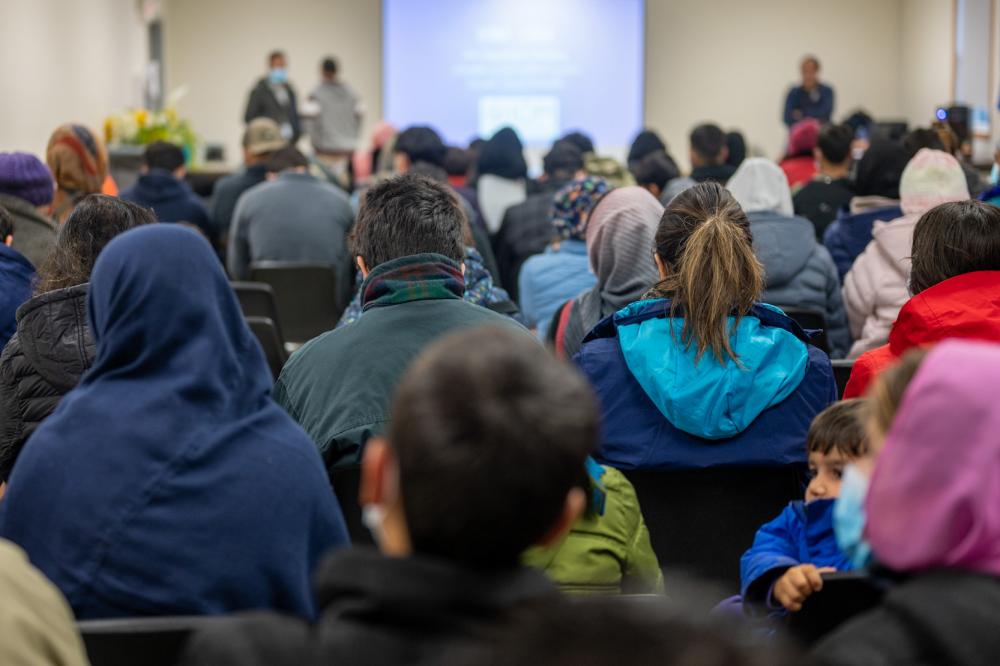A UW-Platteville professor is back after working with Syrian refugees housed on American military bases in Germany. He shares what he learned. Pit bulls have a reputation for being dangerous dogs, but that was not always the case. We look into the history of the breed. And after a deadly chemical attack in Syria, we take a look at how the Trump administration is responding to the Syrian conflict compared to the Obama administration.
Featured in this Show
-
White House Response To Chemical Weapon Attack In Syria
Human rights organization reports say that a suspected poison gas attack has killed over 50 people, including children, in the Syrian province of Idlib. The Trump administration attributed the attack to the Syrian government and called it “reprehensible.” We’ll take a look at White House responses to the conflict in Syria, and how the Trump and Obama administration have differed on the issue.
-
UW-Platteville Professor Spends Sabbatical Helping Refugees In Germany
A UW-Platteville education professor recently finished a six-month sabbatical in Darmstadt, Germany, where he worked with Syrian refugees who are awaiting asylum. We learn about the experience and the plight of more than 10,000 refugees who are housed at two former U.S. military bases there.
-
UW-Platteville Professor Shares Lessons From Time With Refugees In Germany
Earlier this spring, University of Wisconsin-Platteville education professor Daniel Leitch returned home from a six-month sabbatical in Darmstadt, Germany, near Frankfurt. He was there to work with Syrian refugees awaiting asylum, an experience he says was both inspiring and humbling.
Back in the United States, Leitch is sharing some of the lessons he learned from his time spent with people displaced by war and other hardships in their homelands.
For one thing, Leitch said he came away with a new understanding of the term “refugee.”
“It’s not just one group, when you say ‘refugees,’ there’s a lot of different nationalities, ethnicities and languages,” Leitch said. There were 12 different language groups in the program he worked with during his time in Darmstadt, he said.
The professor also said he gained a better understanding of the idea that people aren’t defined by the term “refugee.” It’s a legal term applied to these people during a period of their lives, he said, but many are just ordinary people uprooted by conflict.
Primarily, Leitch worked with peer mentors, refugees who volunteer to help newer arrivals to that part of Germany.
Leitch said it was striking, “to see individuals that have lost everything, and yet still be able to reach out and help their fellow refugees.”
Likewise, Leitch said he was struck by the ability of small towns to accommodate refugees, and to come together and welcome them.
He was impressed by, “the tremendous number of volunteers who would step forward and teach them German, for example, or help them with paperwork.”
He added that he thinks people in the U.S. could do the same thing.
-
Re-Thinking Our Relationship With Pit Bulls
Over the decades, pit bulls have been glorified, vilified, and put to work in dogfighting pits and movie sets. Our guest shares the history of the pit bulls in America.
Episode Credits
- Veronica Rueckert Host
- Kate Archer Kent Host
- Haleema Shah Producer
- Kate Archer Kent Producer
- Veronica Rueckert Producer
- Jeremi Suri Guest
- Daniel Leitch Guest
- Bronwen Dickey Guest
- Veronica Rueckert Interviewer
Wisconsin Public Radio, © Copyright 2025, Board of Regents of the University of Wisconsin System and Wisconsin Educational Communications Board.


